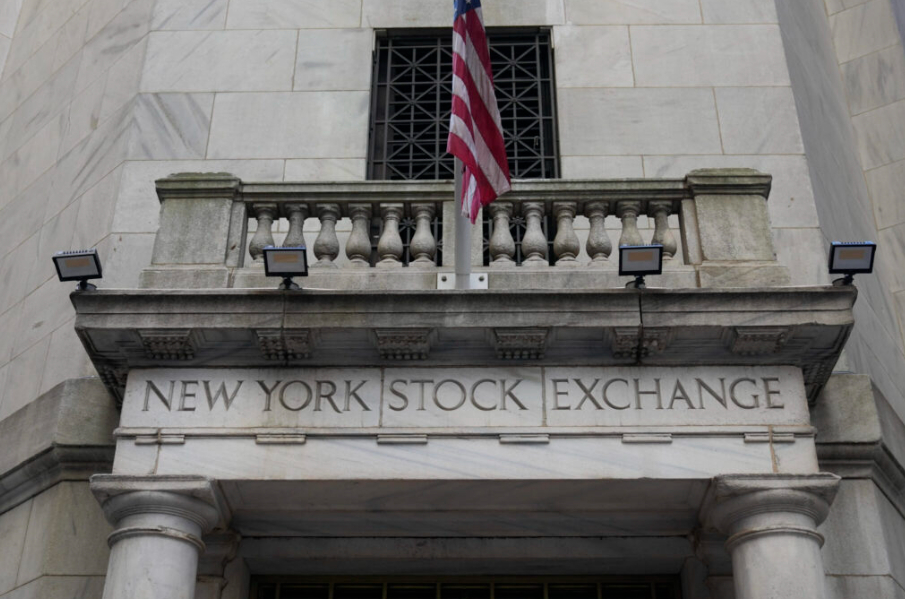
When Donald Trump announced a "historic" tariff policy on global trading partners on April 3, Wall Street's red alarm quickly sounded. The Dow Jones Industrial Average plunged 1,148 points at the opening, the S&P 500 fell 4.84%, and the Nasdaq recorded its largest single-day drop since March 2020. This financial tsunami caused by the tariff policy is evolving into a domino effect affecting the global economy.
The core of Trump's tariff policy this time is to impose a 10% base tariff on all imported goods and impose punitive tariffs of up to 50% on specific countries. The comprehensive tax rate on Chinese goods has soared to 34%, the EU tax rate has increased to 20%, and Japan and South Korea face tariff barriers of 24% and 25% respectively. What the market is most worried about is that Trump will expand the scope of tariffs from traditional fields such as steel and aluminum to pillar industries such as automobiles, chips, and consumer electronics. Tesla's stock price plummeted 8%, Apple's market value evaporated more than $300 billion, and chip giants Nvidia and Broadcom both fell more than 10% in a single day. Wall Street analysts bluntly stated that this was the most violent market shock since the black swan of the epidemic in 2020.
The impact of tariffs is rapidly transmitting along the industrial chain. Take Apple as an example. Its supply chain is deeply dependent on Asian manufacturing, and more than 50% of its components come from China. The tariff costs will eventually be passed on to consumers. Goldman Sachs predicts that iPhone prices may rise by 15%, directly impacting the consumer electronics market. More worryingly, American 401(k) retirement account holders have lost an average of 5% of their wealth, and the balance sheets of ordinary people are under pressure. Economists warn that combined with energy price fluctuations and supply chain reconstruction costs, the core inflation rate in the United States may exceed 4% this year, forming a "wage-price spiral."
The risk aversion caused by Trump's tariff policy has swept global financial markets. The Nikkei index fell 3.2%, the Euro Stoxx 50 index fell 2.8%, and emerging market currencies depreciated collectively. Crude oil prices plunged 3% due to expectations of Canadian crude oil tariffs, but the market is also worried that OPEC+ production cuts will hedge against geopolitical risks. It is worth noting that although Trump emphasizes "America first", Wall Street institutions generally believe that the tariff war will lead to a decline in global trade, and the US export-oriented industries will become the biggest losers.
With the 2024 election approaching, Trump's tariff policy is full of political calculations. By shaping the image of a strongman who "fights the global trade system", he is trying to consolidate the base votes. But the economic reality is seriously deviating from the political logic: the U.S. Chamber of Commerce warned that tariffs will lead to the loss of 300,000 manufacturing jobs, and Moody's analysis said that the US GDP growth rate may decline by 0.5 percentage points in 2025. This deviation between policy and market reflects the deep contradictions of the US economic governance system.
The market is digesting two core uncertainties: one is whether Trump will further escalate tariff measures, especially against key trading partners such as Canada and Mexico; the other is the possible scale of retaliatory tariffs by major economies in the world. Deutsche Bank economist Brett Ryan pointed out that the current market has fallen into a state of "policy shock", and any new tariff-related actions may trigger a new wave of selling. In the long run, supply chain restructuring will push up corporate operating costs, weaken the competitiveness of the U.S. manufacturing industry, and lay the hidden dangers of economic recession.
When Trump declared on Twitter that "the U.S. economy will be stronger as a result", Wall Street traders were anxious about the record of falling prices. This financial storm that started with the tariff policy is pushing the U.S. economy to a crossroads full of uncertainty. Historical experience shows that there are no real winners in trade wars, and the plunge on Wall Street may just be the beginning of this economic domino effect.

報告顯示,中國電力投資加速增長,預計2024年電網基建投資將超過5300億元。
近日,市場迎來了一則引人注目的消息:工業巨頭3M公司(MMM.N)在本周五公布了其季度業績報告,隨後股價飆升至近兩年來的
最近,外媒給OpenAI算了筆賬,今年可能要血虧50億美元。
近日,巴黎奧運會和世界鐵人三項協會聯合發布了一項重大決定,宣布因塞納河水質污染問題,原定於近期進行的奧運會鐵人三項首次下
當地時間7月18日,法國巴黎發生了一起令人震驚的持刀襲警事件。
近期,一則重大消息在國際舞臺上引起軒然大波,馬來西亞宣布加入金磚國家。
調查發現,互聯網和智能手機的使用幹擾了韓國近五分之一學生的生活。